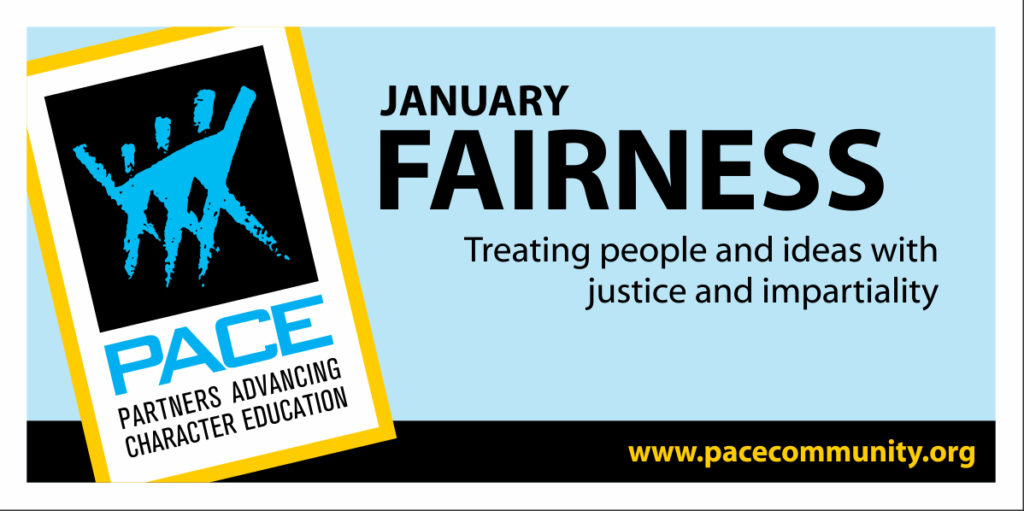
Judge Jeffrey Smith
Henry Taylor said, “He who gives what he would as readily throw away, gives without generosity, for the essence of generosity is in self-sacrifice.
“For it is in giving that we receive.” St Francis of Assisi wrote those words eons ago. But the concept is ageless. What does it mean to be generous? Generosity is defined by Mario Webster as, one who is “liberal in giving.” The word “generosity” derives from the Latin word “generōsus” which means “of noble birth.” I will return to that concept in a bit, but I find it very interesting that nobility and generosity share a common root. Generosity is a commonly shared virtue and character trait recognized and encouraged by virtually every culture and religion. Most likely the reason generosity is held in such high esteem is it doesn’t necessarily come naturally or easily. If we are honest, each of us trends toward selfishness, greed, and envy. Generosity is the antidote for such a trend. It is also the topic of scientific and sociologic study. Researchers at the University of Notre Dame are exploring the “sources, origins, and causes of generosity .” I like that definition. Other researchers are investigating the connection between generosity and oxytocin (the neurochemical thought to be responsible for social bonding, trust, empathy, pro-social behaviors, and a decrease in anxiety, to name a few). It appears we benefit neurochemically when we give to others. Seems that St. Francis was on to something.
Over the years, I have come to understand that giving liberally to others can come in the form of treasure (money or resources), talent (our unique abilities and gifts), and time (our most valuable and un-replenishable resource). Most articles on generosity focus on these three areas. Although we’ll take a brief look at each one, I don’t want to re-hash what most of us already know. What I want to do is challenge you to be generous in uncommon ways. Again, more on that in a bit.
When people speak of generosity, it is common to begin with the concept of giving money. It is the most frequent way people identify as being generous. Whether it is to the homeless person on the street corner, giving to our favorite charity, or helping out a friend or relative in need, our generosity usually takes form in dollars and cents. While giving of money to individuals and organizations in need is of critical importance, it also tends to be the easiest form of generosity. Let me ask, is it easier to hand a person $5 and tell them to go grab lunch, or take them with you, buy them lunch and have a conversation with them? Would most people rather write a check to a youth organization, or spend time mentoring a troubled youth? Giving of our talent and time is more difficult because it forces us to take a greater investment in the person or organization, but also tends to be more rewarding. I encourage you to give beyond your treasure and focus more on giving of your time and talents. Your return on investment will be terrific.
Like I mentioned earlier, what I’d like to do is challenge you to be generous in uncommon ways. Specifically, sacrificial generosity, anonymous generosity, and what I call no-strings-attached generosity. Giving liberally to others through the prism of sacrifice, anonymity, and with no expectations takes generosity to a different level. First, giving out of sacrifice (rather than abundance) helps us keep our priorities in line. The English author and dramatist Henry Taylor said, “He who gives what he would as readily throw away, gives without generosity, for the essence of generosity is in self-sacrifice.” Giving up something I want, in order to give abundantly to someone else, is a powerful antidote to selfishness. Try it sometime. You won’t be disappointed. Next, have you ever given to someone anonymously? There is something beautiful in knowing the person (or organization) to whom you gave will never know it was you. Frank A. Clark, a politician from the mid-1800’s said, “Real generosity is doing something nice for someone who will never find out.” Mr. Clark was right. Finally, giving with no-strings-attached seems like a no-brainer. However, if we are entirely honest, it’s not that easy. Write a big check—see our company name on the program flier (it’s good marketing we’re reminded). Spend time volunteering at our favorite charity—see your name of the ‘volunteer of the year’ plaque. Don’t get me wrong. I don’t believe there is anything wrong with either of those things. But giving in the spirit of no expectations takes courage. Seventeenth century author and clergyman John Bunyan, said, “You have not lived today until you have done something for someone who can never repay you.” Make it a priority to give with no expectations.
Next time you give liberally (or as the Notre Dame folks said, “giving good things to others freely and abundantly) of your treasure, time, and talent, do so sacrificially, anonymously, and with no-strings-attached. Then your generosity will be truly noble.
Judge Smith currently serves in Spokane County District Court. He is acting presiding Judge and was recently elected to the Board of Governors of the District and Municipal Court Judge’s Association. Prior to his judicial appointment, Judge Smith practiced litigation and corporate law at the intellectual property firm of Lee & Hayes in Spokane. While practicing law, Judge Smith served on many non-profit boards. Before attending law school, Judge Smith practiced medicine for 16 years as a PA, in Spokane. Judge Smith is a graduate of Whitworth University, Yale University School of Medicine, and Gonzaga University School of Law.
See, http://generosityresearch.nd.edu
Zak, Paul J.; Stanton, Angela A.; Ahmadi, Sheila (7 November 2007). “Oxytocin Increases Generosity in Humans” PLOS ONE. 2 (11): e1128.

